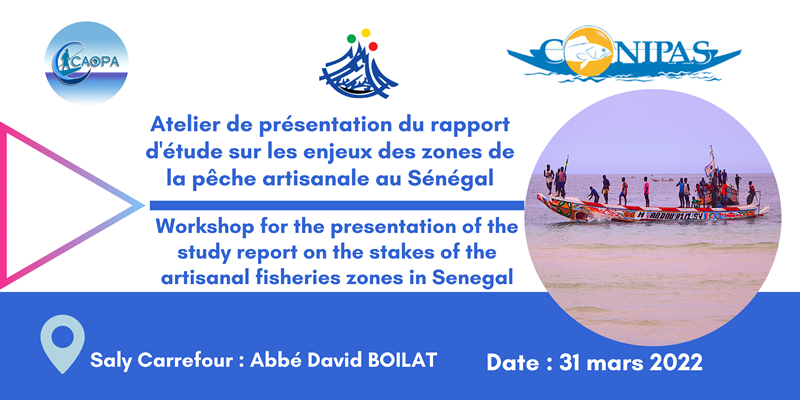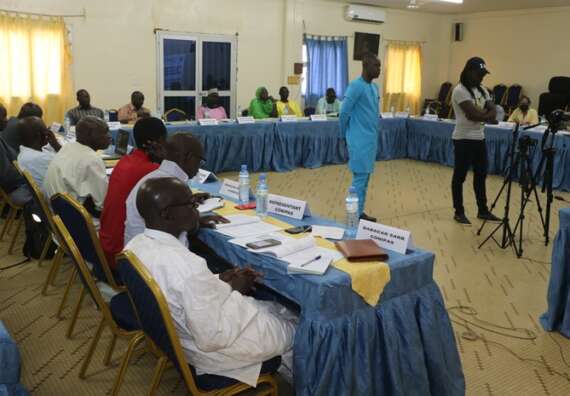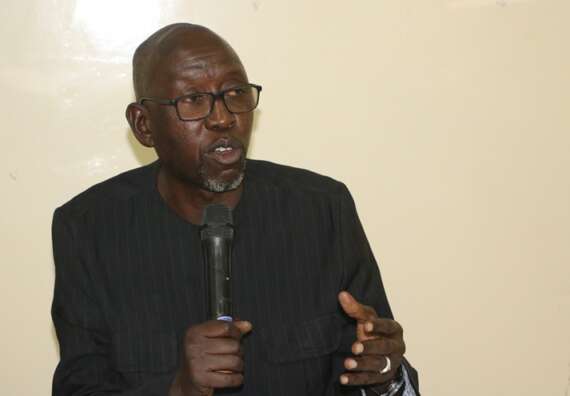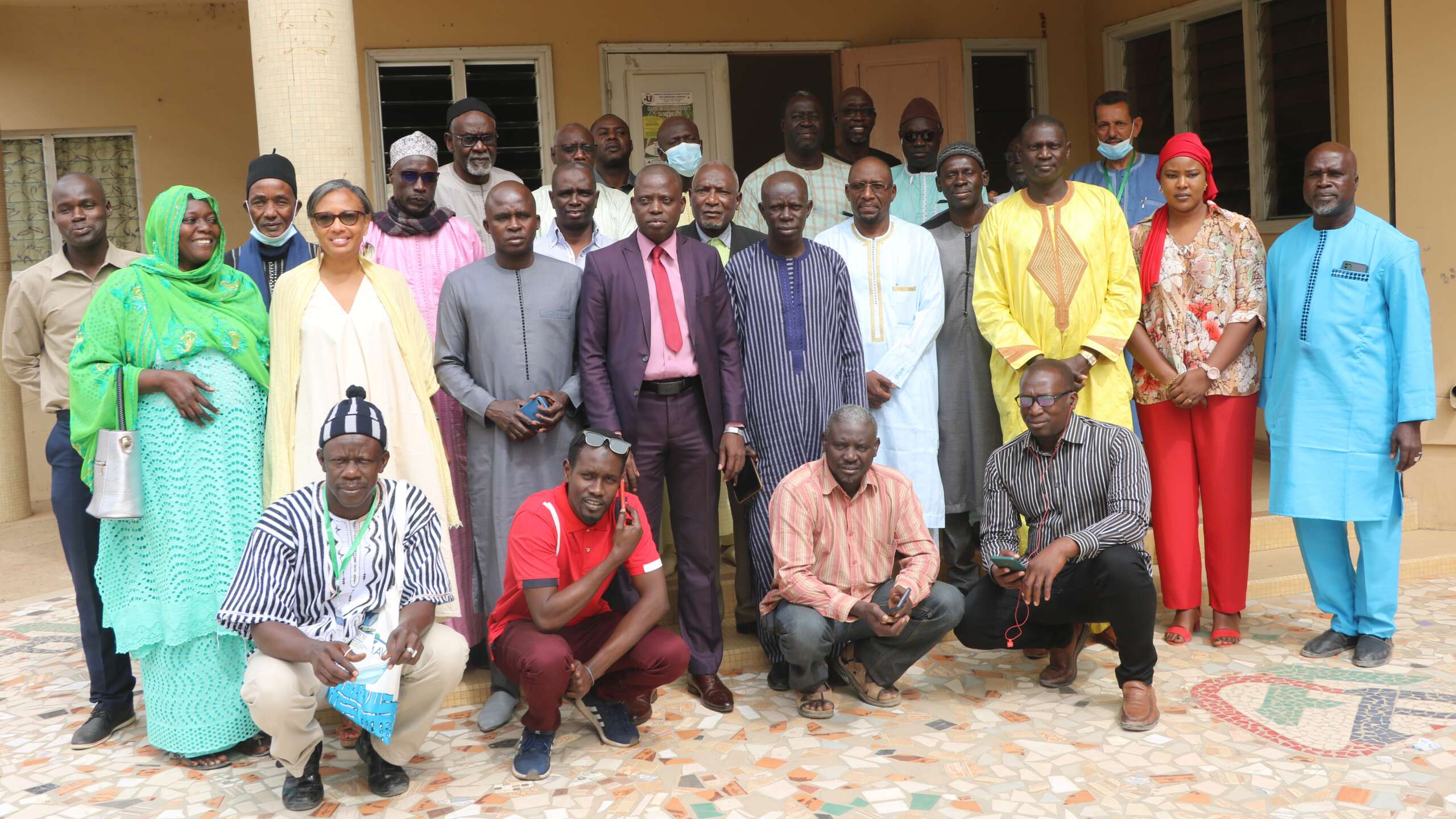Mbour -Senegal – March 31, 2022- As part of the celebration of the International Year of Artisanal Fisheries and Aquaculture (IYAFA 2022) decreed by the United Nations General Assembly, the African Confederation of Professional Organizations of Artisanal Fisheries (CAOPA) has commissioned a series of studies on the challenges facing artisanal fishing areas in Sierra Leone, Ghana, Madagascar, Mauritania, Gambia, Republic of Guinea and Senegal, with the support of the Coalition for Fair Fisheries Agreements (CFFA) and the Swedish Society for Nature Conservation (SSNC).
 The presentation of the results of the Senegal study was made on Thursday 31 March 2022, in Mbour, located 80 km south of Dakar.
The presentation of the results of the Senegal study was made on Thursday 31 March 2022, in Mbour, located 80 km south of Dakar.
The report was written by Mrs Diénaba BEYE TRAORE, an international legal expert and consultant. The study presents the different regulations related to artisanal fishing in Sierra Leone. Based on discussions with fishermen, the gaps in these legal texts are then identified and recommendations are proposed. The results are reported in a document containing recommendations for the securing of artisanal fishing zones in Senegal.
NO AREA EXCLUSIVELY RESERVED FOR SMALL-SCALE FISHERIES
“In the Republic of Senegal, apart from the Protected Marine Areas (PMAs), there is no limitation to artisanal fisheries which can be practiced in the whole of the Senegalese maritime zone. For other types of operations, fishing zones are located beyond 03 nautical miles from the low water mark,” reads the report, which stresses, however, that there is no zone exclusively reserved for artisanal fishing.
 Despite the importance of the fisheries sector, on which a large part of the Senegalese population depends, problems persist, mainly related to conflicts between fishermen in the different fishing zones.
Despite the importance of the fisheries sector, on which a large part of the Senegalese population depends, problems persist, mainly related to conflicts between fishermen in the different fishing zones.
On the basis of discussions with fishermen, the shortcomings of these legal texts are then identified and recommendations are proposed.
Despite the importance of the fisheries sector, on which a large part of Senegalese population depends, issues persist, mainly related to conflicts between fishermen in the different fishing zones. These issues underline the need for a better understanding of the regulation of artisanal fisheries in this country.
ISSUES
According to the report, the main issue that can delay or even block access to artisanal fishing areas is mainly related to obtaining a fishing permit under Article 68 of the Maritime Fisheries Code (MFC). This is subject to several prerequisites:
– Firstly, this permit requires prior authorization before the import, construction or acquisition of a new vessel or fishing gear or its conversion into a fishing vessel. This authorization is given by an administrative authority, but in practice boats are built, bought or converted without this authorization for several reasons: ignorance of the regulations in force, the informal nature of the artisanal fisheries sub-sector or the lack of expertise within the administration responsible for authorizations.
Since its creation in 2010, CAOPA has worked hard for the recognition of small-scale fisheries.
 “For more than ten years, we, men, women and youth of African artisanal fisheries, have joined forces to ensure that our sector is recognized at its true value by our States, which are our primary partners. Little by little, our work has given our communities the confidence to assert their advantages, in social, economic and cultural terms and as managers of coastal ecosystems, over other activities that exploit the oceans and coastlines, such as industrial fishing, oil exploitation, coastal tourism, etc.”
“For more than ten years, we, men, women and youth of African artisanal fisheries, have joined forces to ensure that our sector is recognized at its true value by our States, which are our primary partners. Little by little, our work has given our communities the confidence to assert their advantages, in social, economic and cultural terms and as managers of coastal ecosystems, over other activities that exploit the oceans and coastlines, such as industrial fishing, oil exploitation, coastal tourism, etc.”
Today, artisanal fisheries are better recognized at the international level, through the FAO’s Voluntary Guidelines for Sustainable Small-scale Fisheries, and through the Sustainable Development Goals agreed by the United Nations, which call on all countries to “Guarantee access to resources and markets for artisanal fishers”, explained Gaoussou GUEYE, President of CAOPA.


